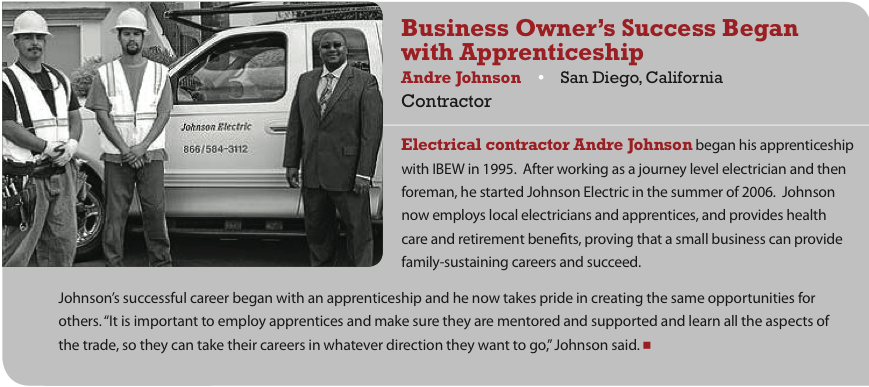PARTNERSHIP FOR WORKING FAMILIES
Introduction
Across the country, a diverse array of community, environment, faith and labor movement leaders are uniting to win construction careers agreements and policies. These leaders know that all communities have a stake in ensuring a high quality construction industry serves our cities, because we need a greater supply of real career opportunities and construction is one industry that can be leveraged to help supply them.
A construction careers approach uses policies, programs and in some cases private agreements to create a higher quality construction market while also increasing access to construction careers for low-income workers, women, veterans, and workers of color.
Construction careers models typically include job quality standards that specify the wages and benefits that must be paid, require contractors to provide skills and safety training, and/or ensure that contractors with violations of state wage and hour laws are not eligible to get work on publicly funded construction projects. Sometimes these standards and requirements are part of procurement regulations or of a negotiated project labor agreement, but they can also be established through other kinds of legal agreements.
Construction career models also include targeted hiring programs, with requirements that workers from low-income neighborhoods (often workers of color) get a percentage of the work hours on public projects and concrete mechanisms to implement and enforce these requirements.
In a good construction careers model, job quality and targeted hiring outcomes are tracked and reported so the general public can see how a good construction project benefited the community.
Construction careers approaches can apply to one big project, like the agreement that governed the 10-year redevelopment of the Port of Oakland. Or they can apply to a series of projects that receive public funding, like the Construction Careers Policy implemented by the Los Angeles Community Redevelopment Agency, which required this model be applied to all subsidized construction projects governed by the CRA.
Through these mechanisms, construction careers models provide three central benefits.
1. Construction careers models create higher quality career opportunities. Job quality in the construction industry is in decline. In the 1970s, construction wages outpaced most other industries, but in recent years, construction wages have stayed right near the average for all industries.2 Average wage indicators mask the reality that there are two kinds of construction jobs: high quality careers that pay well, offer benefits and provide opportunities for advancement; and low quality seasonal and temporary jobs. Construction careers models shift the balance back toward good careers.
2. Construction careers models connect communities with high unemployment to new career opportunities. Civil rights leaders and leaders from communities of color have expressed concern about racial and gender disparities in the construction workforce.3 Increasing access to construction careers for these workers benefits their households and neighborhoods, and the construction industry as a whole. Projected long-term shortages in the construction workforce indicate the need to attract and support new workers. Many workers from low-income communities and communities of color are already engaged in construction, but they are concentrated in low-wage and temporary jobs that do not support their families. Getting these workers into the highest quality apprenticeship programs can solve multiple problems at once.
3. Construction careers models support a training-focused business model that can create the workforce of tomorrow. Strong skills drive quality construction. It is simply impossible to support metropolitan construction needs — which include complicated infrastructure projects, high-rise offices and hotels, and urban retail and entertainment complexes — without a skilled workforce. Contractors do not share in the costs of this training equally. Some pay nothing for training, while others incorporate training into their business model. Construction careers models place a premium on contractors who help fund and participate in the best training programs with the strongest graduation rates.
Read full report (PDF) here: The Construction Careers Handbook
About The Partnership for Working Families
http://www.forworkingfamilies.org/
“The Partnership for Working Families was created as a national federation of regional power-building organizations in 2006. Our affiliates bring together labor and community interests reflecting the needs and voices of working families in the 21st century. We founded the Partnership with the belief that regional organizing is a critical and oft-forgotten step in rebuilding our democracy and increasing access to the middle class. Across the nation, we are champions of innovative economic policies that can lead to local and national change for working families. Our successes underscore the importance of community engagement in transforming public policy to stimulate and support economic growth for all.”
Tags: Partnership for Working Families, The Construction Careers Handbook







 RSS Feed
RSS Feed